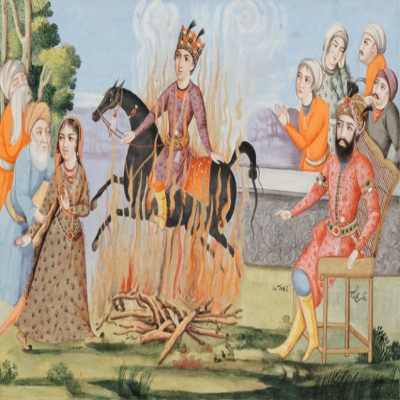Thank you for visiting. We trust that you have enjoyed reading our articles.

Crisis Management From Daniel
“Then Daniel returned to his house and explained the matter to his friends Hananiah, Mishael and Azariah. He urged them to plead for mercy from the God of heaven concerning this mystery, so that he and his friends might not be executed with the rest of the wise men of Babylon” (Daniel 2:17-18 NIV).
I have long enjoyed reading the book of Daniel. He was a young Jewish man that lived in Jerusalem and was taken into captivity by Nebuchadnezzar of Babylon. He loyally served the king while remaining true to God. The story of Daniel in the lion’s den from Daniel 6 is one of the better-known Sunday school stories. I also love the story of the fiery furnace as described in Daniel 3.
There is another great story from Daniel in chapter 2. King Nebuchadnezzar was angry because none of his astrologers were able to interpret his troubling dreams. He then ordered the execution of all his advisers which include Daniel and his friends. The king’s men eventually located Daniel and informed him of the king’s decree.
When Daniel heard the news, he asked Arioch, commander of the king’s bodyguard, “why the king had issued such a harsh order. So Arioch told Daniel what had happened. Daniel went at once and obtained royal permission for more time, so that he could tell the king what the dream meant. Then Daniel went home and told his friends Hananiah, Mishael, and Azariah what had happened. He told them to pray to the God of heaven for mercy and to ask him to explain the mystery to them so that they would not be killed along with the other advisers in Babylon. Then that same night the mystery was revealed to Daniel in a vision, and he praised the God of heaven …” (Daniel 2:15-23).
Daniel was modelling for us today the correct response to what seems like an impossible situation. First, Daniel did not panic. He learned all the facts and sought to understand the reason for the king’s request. When someone asks us to do the impossible, we need to gain a better understanding of the situation so we can appropriately respond.
The king was scared and worried. He was panicking, irrational, and made an illogical demand. The second thing Daniel did was to ask Arioch information so he could better understand the situation. Proverbs 23:23 teaches us to, “Get the facts at any price.”
Daniel realized that this situation was too big for him to handle by himself. The third thing he did was to activate his prayer warriors. Daniel “urged them to plead for mercy from the God of heaven concerning this mystery (Daniel 2:18).” Daniel was showing us the importance of having an existing prayer team. It is not an issue of if a crisis will come to any of us but when will it come and how will we respond.
Daniel turned his focus away from the problem and toward God. He asked God for supernatural help. By focusing on God, Daniel was worshiping God. God did what only He can do. “That night the secret was revealed to Daniel in a vision. Then Daniel praised the God of heaven” (Daniel 2:19).
Finally, but of great importance, Daniel used this situation to point others toward God and not himself. After the king had asked Daniel if he could interpret the dream, Daniel replied, “No wise man, enchanter, magician or diviner can explain to the king the mystery he has asked about, but there is a God in heaven who reveals mysteries” (Daniel 2:27-28). Daniel wisely gave credit to God and turned the crisis into successful evangelism. The king said to Daniel, “Surely your God is the God of gods and the Lord of kings and a revealer of mysteries, for you were able to reveal this mystery (Daniel 2:47).” Thanks be to God!
Prayer: Dear God: Thank you for giving us Scripture and for using Daniel to show us how to worship you in a crisis. When we are faced with adversity may we worship you with praise and prayers of thanksgiving for your love and grace and lift petitions in confidence for Your help that will come in the perfect form and perfect time.
Meet the Author
Todd Shupe is a Men’s Ministry Specialist through the General Commission of United Methodist Men and is in training to be a Certified Lay Minister through the Louisiana Conference of the United Methodist Church. He currently serves as the President of the Baton Rouge District of United Methodist Men and is a Board Member for Gulf South Men and serves on the Action Team for The Kingdom Group. He is a volunteer for the Walk to Emmaus, Grace Camp, and Iron Sharpens Iron. Todd resides in Baton Rouge, Louisiana.
We welcome your comments below.
Liked this post?
Read more below or search for more topics...
-
True Freedom
True Freedom “There is no fear in love. But perfect love drives out fear, because fear has to do with punishment. The one who fears is not made perfect in love” (1 John 4:18 NIV). One of the greatest blessings we have as Americans is our freedom. The first ten amendments of the Bill of Rights guarantee us certain rights that are fundamental to our freedom. Despite all of our freedoms, many people still live in bondage and have denied themselves true freedom. Many us live in fear of something – death, debt, an abusive spouse, etc. Some live with guilt over something... -
Evangelism Begins With Discernment
Evangelism Begins With Discernment "Calling the Twelve to Him, He began to send them out two by two and gave them authority over impure spirits" (Mark 6:7 NIV) Evangelism is typically defined as the spreading of the Christian gospel by public preaching or personal witness. Many Christians are uncomfortable with active engagement in evangelism because they do not consider themselves a preacher and are too timid to engage in personal witness. The gift of evangelism is directly from Christ: “So Christ himself gave the apostles, the prophets, the evangelists, the pastors, and teachers.” (Ephesians 4:11).You may not be called to pastoral ministry... -
Getting To The Heart Of The Issue
Getting To The Heart Of The Issue Over the years, I have spoken with many Christians and enjoyed having the opportunity to hear their testimony. Some are “intellectual Christians,” so to speak, and believe that science has proved the existence of Christ and therefore they also believe. Many have provided me with compelling arguments for their Christian faith. I also believe in Jesus and in science. However, at the heart of the issue is our heart. Do you believe in Him in your heart and seek him with your whole heart? Jesus taught us in Matthew 22:37, "Love the Lord your God...



